Are you ready to discover the future of marketing? Now you have the opportunity to test our Digital Signage CMS completely free of charge!
Why?
Start your free trial today!
For us, full service is not just a buzzword, but a promise. We don't offer a patchwork of different service providers, but everything from the idea to the display (planning, hardware, software, support) that has to do with digital signage. Why settle for half measures when you can have the whole package?
The in-house software BEECEEN is the heart of our digital signage solutions. It integrates seamlessly into your processes, is easy to use and always up to date - our xplace development team makes sure of that. While others are still reading the operating instructions, you are already in the fast lane with us. This makes digital signage child's play. And as far as hardware is concerned: whether buying, renting or leasing, we have the right solution for every size of business.
With us, you talk to real people who are deeply involved in the matter, not call centre machines. No waiting loops, no technical jargon. Our in-house team knows our solutions like the back of its hand and solves problems before they even arise. Simply authentic and efficient - that's what makes support fun.
We want to catapult you and brick-and-mortar retail into the future - know it, its opportunities and its challenges. And the best part? We know that the combination of offline and online makes it future-proof. We use all our experience to achieve this: over two decades on the market as a successful digital signage provider.
You have special wishes? Great, we love your challenges. In addition to the digital signage must-haves and basics, we provide you with solutions tailored to your needs, such as sustainable digital pillars made from non-finite raw materials. Whether simple displays or complex, networked systems - we have exactly what you need to drive your business forward. Individually tailored, future-proof and efficient.
Moving images catch the eye. Eye-catchers that invite customers to linger and trigger buying impulses. Since content can be changed and placed on the screens quickly, easily and in line with the target group, advertising measures are more agile and usually more successful.
Moreover, digital signage is a true multi-channel master, connecting offline and online. This creates a seamless shopping experience that generates more sales.
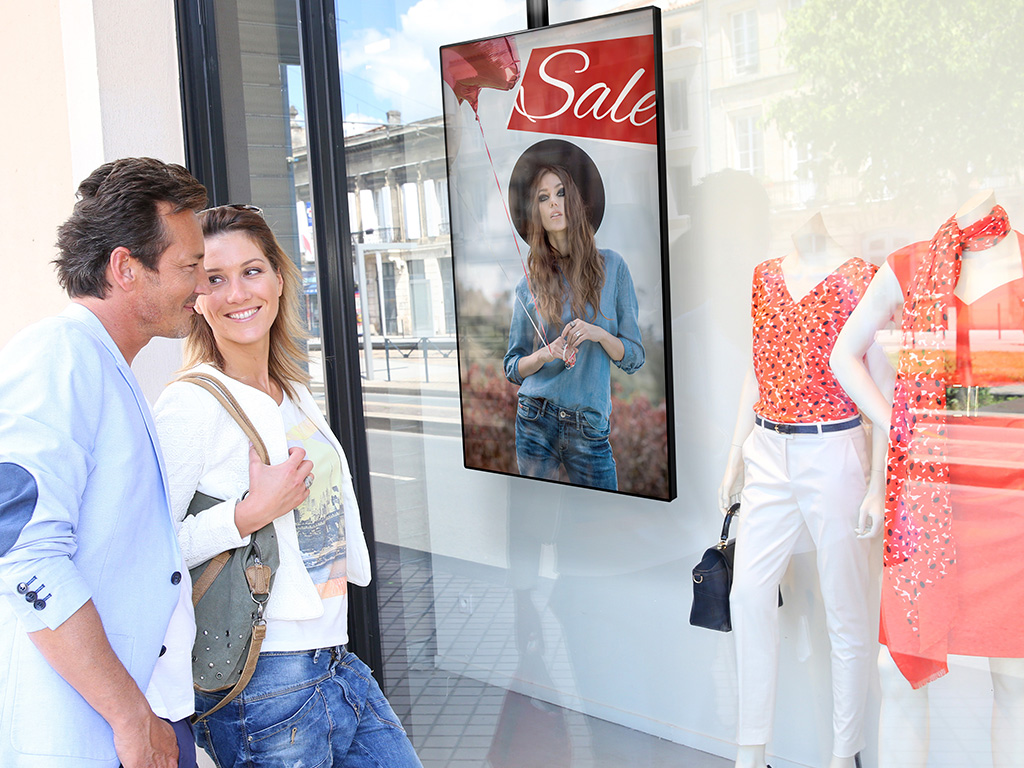
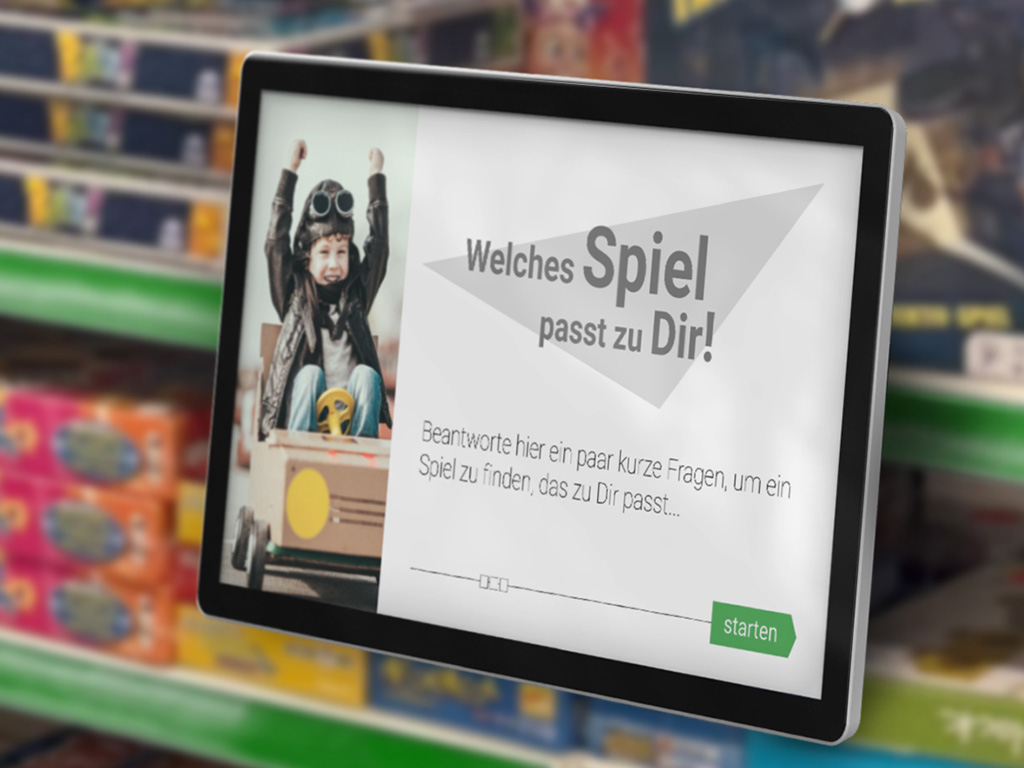
Digital signage appeals to the individual and conveys to the customer that he or she is valuable. Entertainment and useful information such as weather and news shorten the waiting time and offer added value. More desire to come back! Thanks to feedback options via interactive displays, the customer feels understood because you are listening. So many positive experiences improve and deepen customer loyalty. With digital signage, you turn one-time purchases into lasting relationships.
Digital signage informs, advises and automates processes. This relieves your staff, simplifies the distribution of tasks, creates flexibility and saves costs. Your employees have gained time to concentrate on valuable tasks such as individual customer advice. The satisfaction of your customers is increased and with it the chance of higher sales.
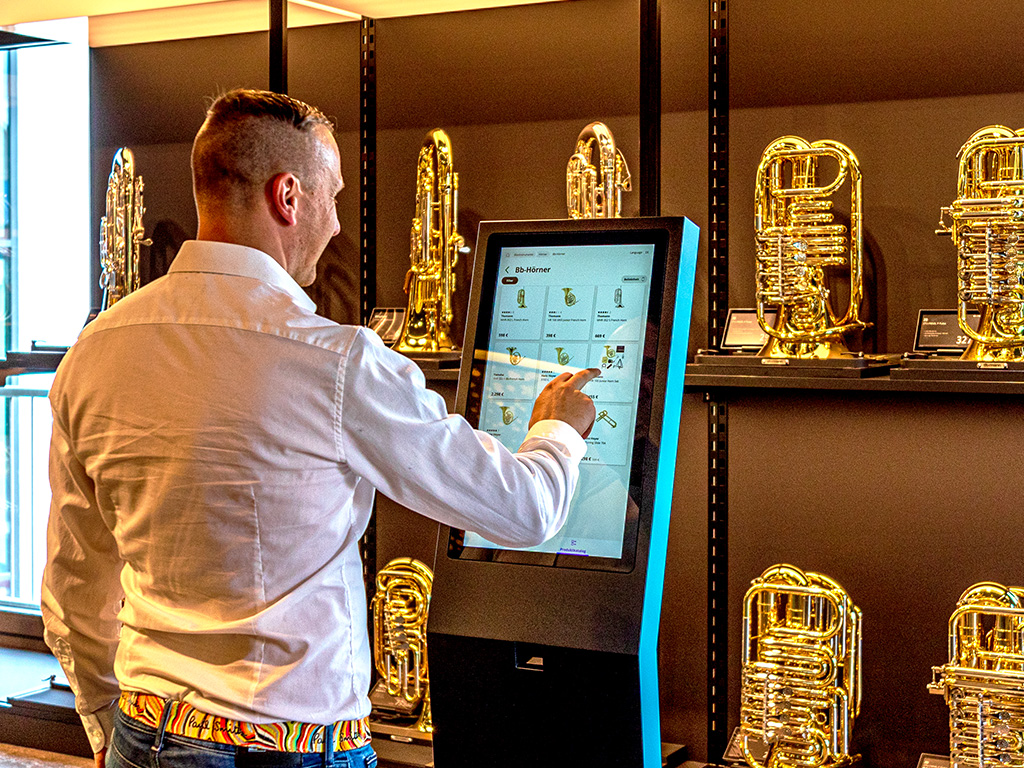
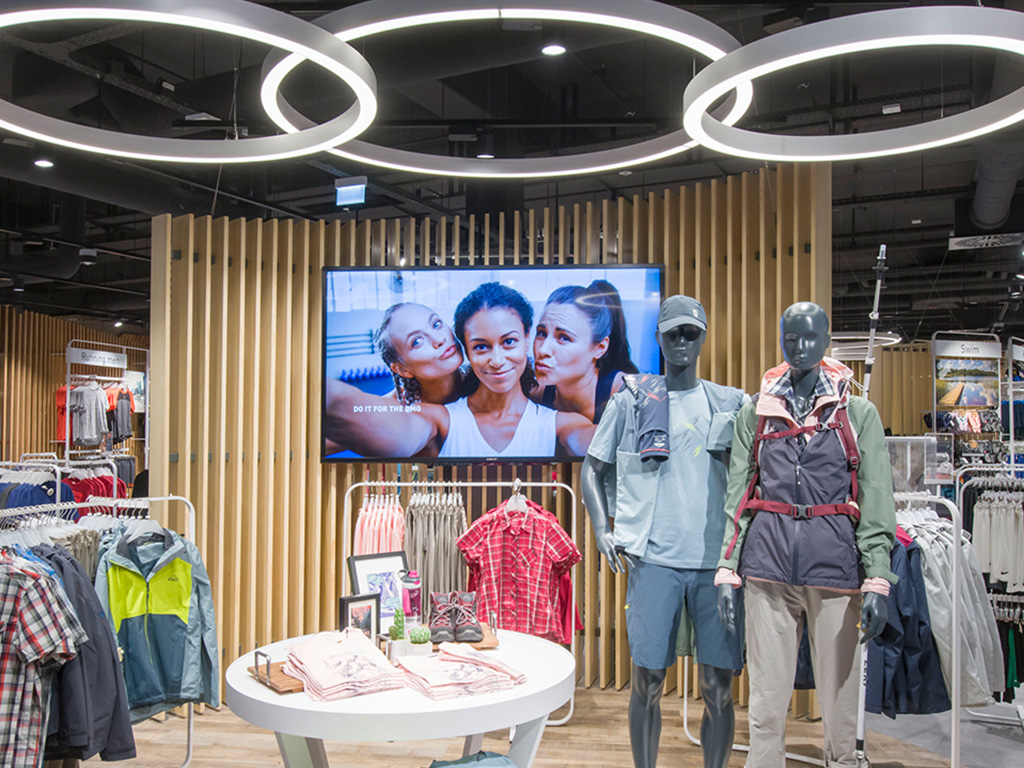
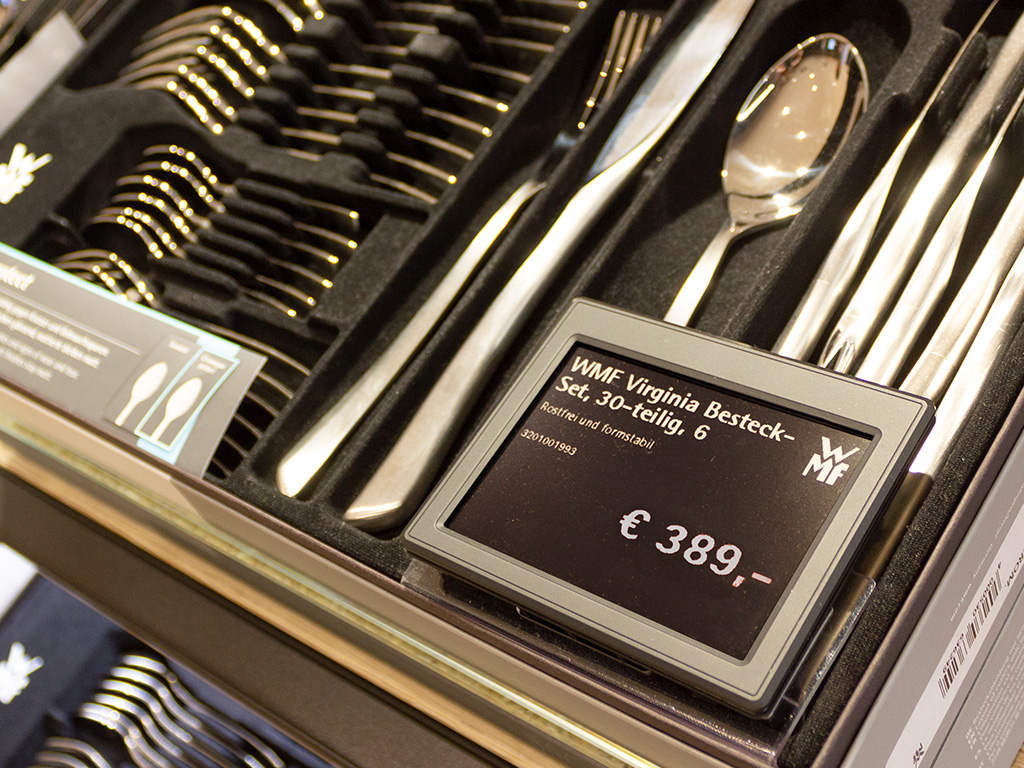
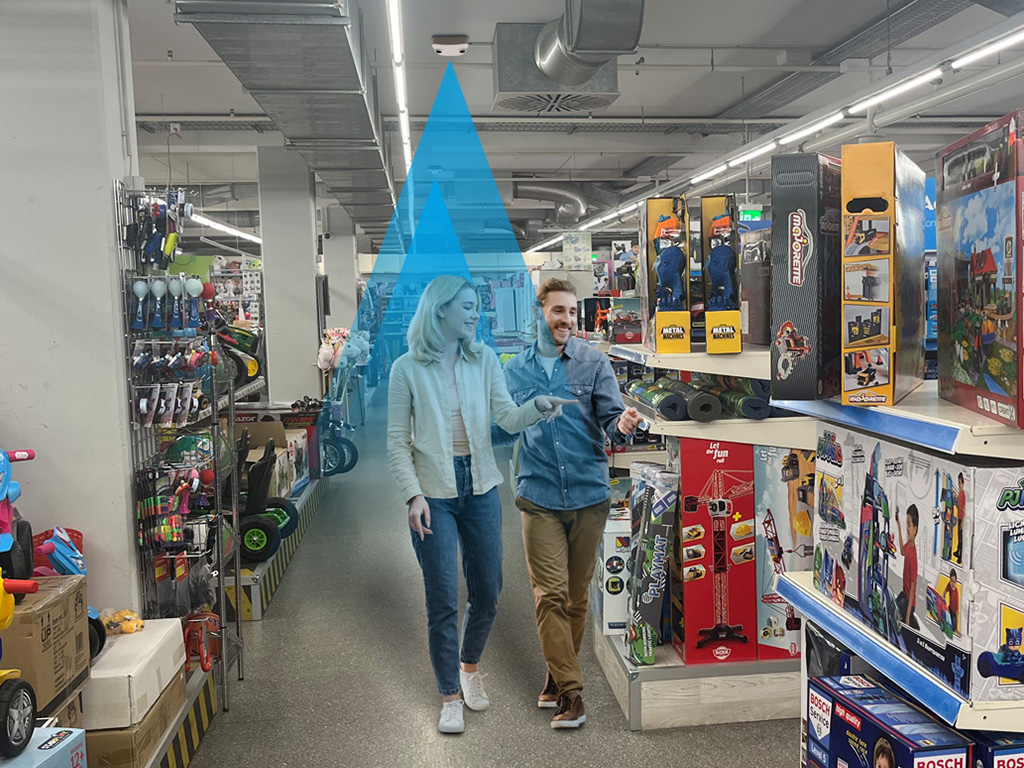
Analogue meets digital: we combine both worlds and bring effective digital communication to stationary retail. Your customers also enjoy the advantages of e-commerce in the retail shop.
Easy and intuitive: Real people intuitively trigger actions at interactive touchpoints.
Shopping becomes an experience that brings much more with it than buying impulses - inspiration & customer loyalty.
Sustainable and genuine: we rely on technologies that conserve resources because tomorrow's trade starts today. With Green Signage, we take responsibility that pays off for you.